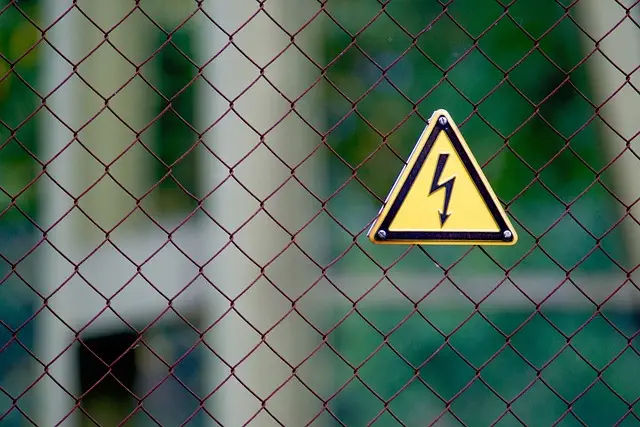Kratom, derived from the Mitragyna speciosa plant, has gained attention as a potential natural remedy for addressing sleep disturbances linked to anxiety. Its alkaloid 7-hydroxymitragynine may offer sedative effects, with users reporting improved sleep quality and reduced restlessness. However, it's important to approach Kratom with caution due to its potential for dependency and the FDA's safety concerns. The supplement's influence on mood and pain sensitivity, often impacted by anxiety, can affect sleep. For those considering Kratom as an anti-anxiety aid for insomnia, it is crucial to consult healthcare professionals for safe and monitored usage. Meanwhile, pharmacological treatments like antidepressants (TCAs and SSRIs) and hypnotics (benzodiazepine receptor agonists and non-benzodiazepine alternatives) remain effective conventional options for managing insomnia, particularly when comorbid with depression or anxiety. A holistic approach that includes Kratom, when appropriate under medical supervision, combined with lifestyle adjustments and relaxation techniques, can be part of a comprehensive strategy to improve sleep quality and address the underlying causes of sleep disturbances. Professional guidance is essential to navigate these options and tailor a treatment plan that suits individual needs.
Navigating the complex landscape of insomnia treatment, this article delves into a spectrum of approaches from natural remedies to pharmaceutical interventions. Beginning with the intriguing role of Kratom in fostering restful sleep, we explore its potential benefits for those grappling with sleep disturbances. Subsequently, we shift focus to non-pharmaceutical methods, emphasizing anti-anxiety techniques that can significantly enhance slumber quality. Finally, we examine the pharmacological options available, including antidepressants and hypnotics, providing a comprehensive overview of current treatments for insomnia.
- Unraveling Insomnia: The Role of Kratom in Promoting Restful Sleep
- Navigating Non-Pharmaceutical Remedies: Anti-Anxiety Strategies for Better Slumber
- Pharmacological Approaches: Antidepressants and Hypnotics in Insomnia Treatment
Unraveling Insomnia: The Role of Kratom in Promoting Restful Sleep

In recent years, Kratom has garnered attention within the context of insomnia treatment, particularly for those experiencing sleep disturbances exacerbated by anxiety. This botanical supplement, derived from the leaves of Mitragyna speciosa, interacts with the brain’s neurotransmitter systems and can modulate mood and pain perception, which often play a role in sleep disruption. The alkaloids present in Kratom, such as 7-hydroxymitragynine, are believed to contribute to its sedative effects, making it a potential alternative for individuals who struggle with falling or staying asleep due to restlessness and anxiety. Users report that Kratom can lead to a more restful sleep by providing a calming sensation that eases the transition into slumber.
However, it is crucial to approach the use of Kratom with caution. While some users find benefit in its anti-anxiety properties for promoting sleep, research on its long-term efficacy and safety remains ongoing. The Food and Drug Administration (FDA) has issued warnings about the potential risks associated with Kratom, including the risk of dependency and side effects. As such, individuals interested in exploring Kratom as a treatment option for insomnia should do so under the guidance of a healthcare professional. This ensures that any potential benefits are weighed against known risks and that proper monitoring is in place to adjust treatments as needed for optimal health outcomes.
Navigating Non-Pharmaceutical Remedies: Anti-Anxiety Strategies for Better Slumber

navigating insomnia often leads individuals to explore non-pharmaceutical remedies that can aid in achieving better slumber, particularly those affected by sleep disturbances associated with anxiety. One such approach is the use of natural supplements like Kratom, which has gained attention for its potential anti-anxiety properties. Kratom, derived from the leaves of the Mitragyna speciosa tree, interacts with the brain’s receptors to induce a calming effect, potentially alleviating the racing thoughts and restlessness that can disrupt sleep. It’s important for those considering Kratom to approach it with caution, as it requires careful dosage and consideration of individual sensitivity. Additionally, integrating relaxation techniques such as deep breathing exercises, progressive muscle relaxation, and mindfulness meditation can complement the use of Kratom and enhance the quality of restful sleep. These strategies help in managing anxiety levels, which is a common underlying cause of insomnia, by promoting a state of calmness conducive to slumber. As with any treatment or remedy, consulting healthcare professionals is essential to ensure safe and effective use, particularly given the varying regulations and research findings surrounding Kratom. By combining these non-pharmaceutical anti-anxiety strategies with lifestyle adjustments like maintaining a consistent sleep schedule and creating a restful sleeping environment, individuals may find significant improvement in their sleep patterns and overall well-being.
Pharmacological Approaches: Antidepressants and Hypnotics in Insomnia Treatment

Pharmacological interventions play a significant role in managing insomnia, offering relief to those who struggle with sleep disturbances. Among these, antidepressants and hypnotics are two categories of medications that can be effective for insomnia treatment. Antidepressants such as tricyclic antidepressants (TCAs) and selective serotonin reuptake inhibitors (SSRIs) may be prescribed to individuals experiencing sleep issues, particularly when these are linked with depression or anxiety. These medications can help regulate the neurotransmitters associated with sleep-wake cycles, thereby improving sleep quality. For instance, TCAs like amitriptyline are known for their sedative properties and are often used as a result. On the other hand, hypnotics specifically target the sleep process. Benzodiazepine receptor agonists, including drugs like zolpidem, eszopiclone, and diazepam, can help induce and maintain sleep by enhancing the effects of GABA, a neurotransmitter that promotes calmness and relaxation. Additionally, non-benzodiazepine hypnotics such as ramelteon, which acts on sleep-wake cycle receptors, and suvorexant, which targets orexin neurons, are also used to treat insomnia.
In the realm of alternative treatments, kratom, a plant-based substance, has gained attention for its potential impact on sleep and anxiety. Kratom contains alkaloids that can influence the brain’s opioid receptors, leading to sedative effects in some individuals. This can be particularly beneficial for those with insomnia who experience anxiety or stress, as it may help alleviate these symptoms and promote a more restful sleep. However, it is crucial to approach the use of kratom cautiously due to its potential for dependence and side effects. The FDA has issued warnings about the safety of kratom, emphasizing that it should not be used without medical supervision. As with any treatment, consultation with a healthcare provider is essential to determine the most appropriate and safe options for managing insomnia, especially when considering alternative therapies like kratom. Anti-anxiety medications, whether pharmaceutical or from natural sources, can play a role in addressing the underlying stress that often accompanies sleep disorders. It is through a careful assessment of each individual’s needs and a collaborative approach with healthcare professionals that the most effective treatment plan for insomnia can be developed.
In conclusion, the multifaceted nature of insomnia necessitates a tailored approach to treatment, encompassing both pharmacological and non-pharmaceutical strategies. The use of Kratom as a potential aid in promoting restful sleep has emerged as a topic of significant interest among those grappling with insomnia. Its effects on sleep quality are promising, though further research is warranted to fully understand its implications. Additionally, anti-anxiety techniques play a pivotal role in addressing sleep disturbances by alleviating the underlying tension and stress that often accompany sleep disorders. Meanwhile, antidepressants and hypnotics have their place in medical insomnia treatment, offering relief for those with chronic sleep issues. Ultimately, the most effective insomnia treatment plan is one that combines a judicious use of medications with holistic practices, ensuring the best possible outcomes for patients. It’s clear that both Kratom and anti-anxiety methods hold potential for improving sleep quality, and ongoing clinical trials will further elucidate their roles in insomnia treatment.






